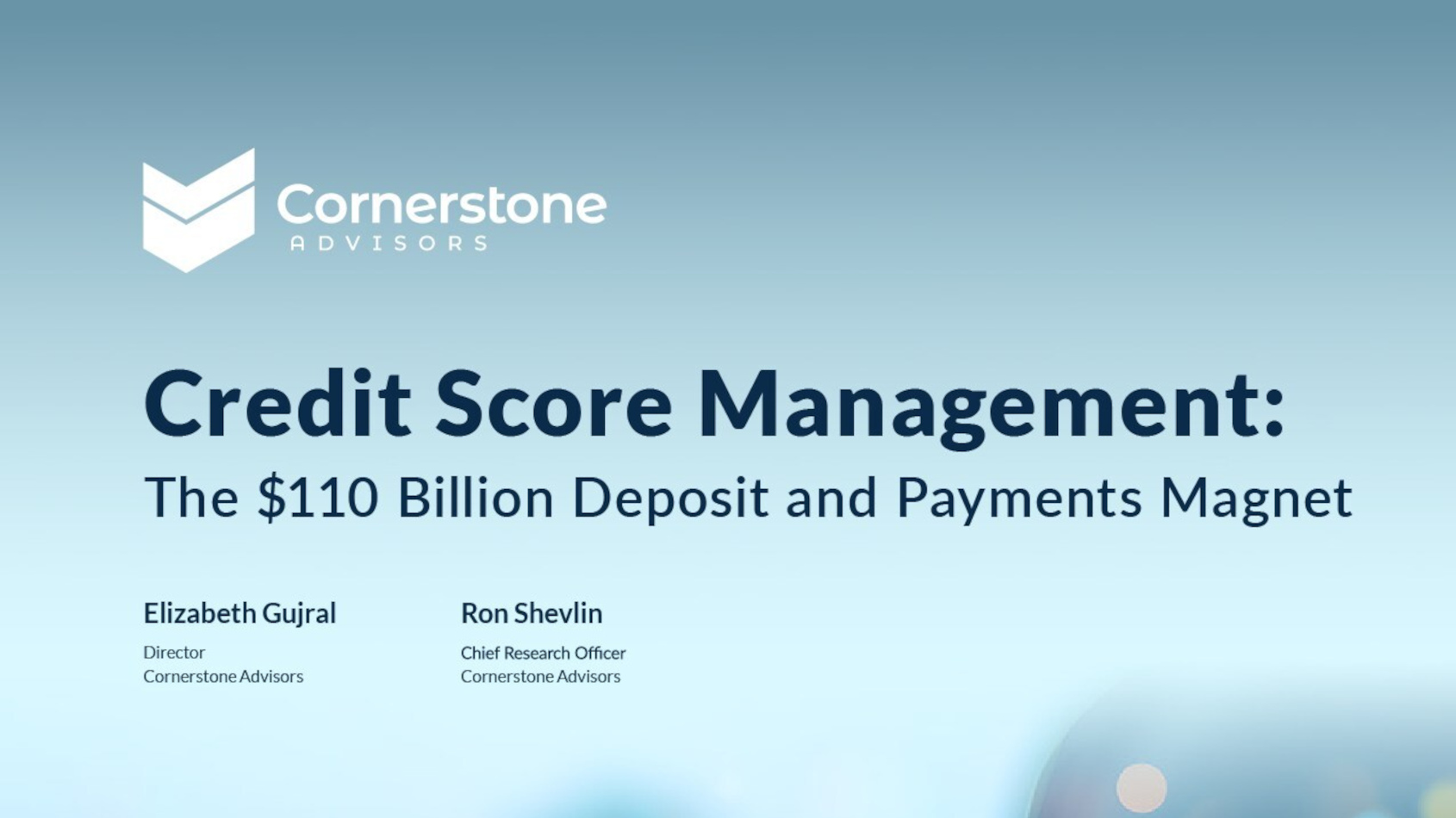Cornerstone Advisors research on what subprime & near-prime consumers want from banks & credit unions

Image courtesy of Cornerstone Advisors.
By subscribing, you agree to receive communications from Auto Remarketing and our partners in accordance with our Privacy Policy. We may share your information with select partners and sponsors who may contact you about their products and services. You may unsubscribe at any time.
New research from Cornerstone Advisors showed a path that could benefit banks and credit unions and consumers with subprime or near-prime credit scores.
The provider of business and technology consulting services for banks, credit unions, and fintech firms estimated that banks and credit unions could recapture $110 billion in deposits and generate more than $1.5 billion in interchange fees by integrating credit reporting capabilities into their checking and payment accounts.
A report titled, Credit Score Management: The $110 Billion Deposit and Payments Magnet, commissioned by Bloom Credit, also revealed that a credit-building feature could entice consumers with subprime or near-prime credit scores to change bank accounts and alter payment behaviors.
According to the study, six in 10 Americans aged 21 to 44 with credit scores of 580 to 670 ranked credit building as the most attractive checking account feature.
The study also mentioned that these consumers said a checking account that reports rent and bill payments to the credit bureaus, thereby helping them improve their credit score, is a “better value” than their current checking or debit card account.
The study went on to highlight that among subprime and near-prime consumers:
Subscribe to Auto Remarketing to stay informed and stay ahead.
By subscribing, you agree to receive communications from Auto Remarketing and our partners in accordance with our Privacy Policy. We may share your information with select partners and sponsors who may contact you about their products and services. You may unsubscribe at any time.
—73% would consider opening a new checking account if it helped them build their credit by reporting rent and utility payments to the credit bureaus
—79% would use a non-primary checking account more frequently to pay bills and make other purchases if it reported their rent and bill payments to the credit bureaus
—68% would switch their direct deposit to a non-primary checking account if it reported rent and bill payments to the credit bureaus
—70% said if the financial institution that turned them down for a loan or credit card had offered them a free service to help them build their credit, they would have used it
“A checking account with integrated credit reporting translates to improved credit product access, affordability, and selection for consumers,” Bloom Credit CEO Christian Widhalm said. “These are tools that can spell differentiation for financial institutions and lead to superior financial service relationships.”
Cornerstone Advisors stressed that credit scores largely focus on how consumers handle debt, offering little benefit for consistently making recurring bill payments.
“Helping consumers establish and improve their creditworthiness by demonstrating how they handle debt and make payments is an enormous opportunity for banks and credit unions in their markets,” said Ron Shevlin, chief research officer at Cornerstone Advisors and co-author of the report.
The report, which is available via this website, is based on a second quarter survey by Cornerstone Advisors of 1,846 adult consumers in the United States with a subprime or near-prime credit score.


